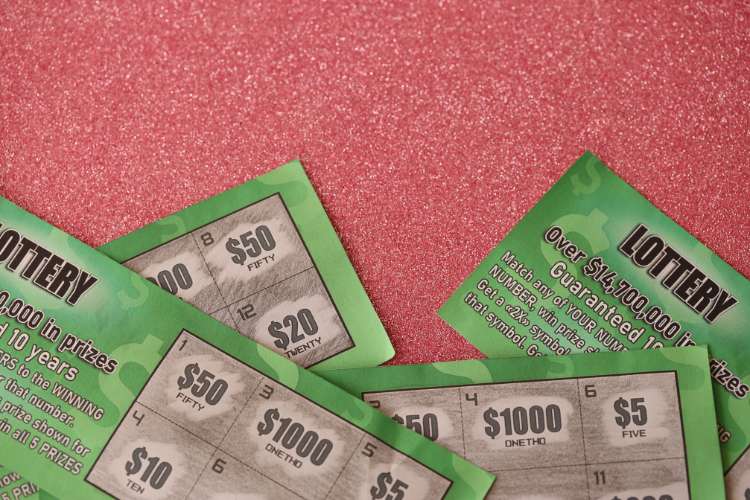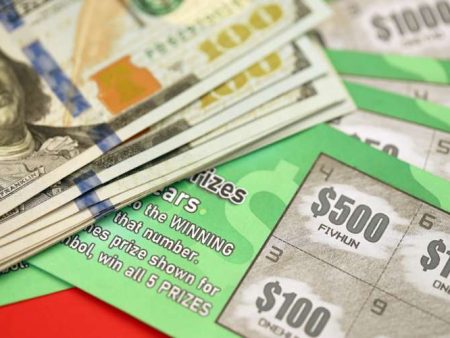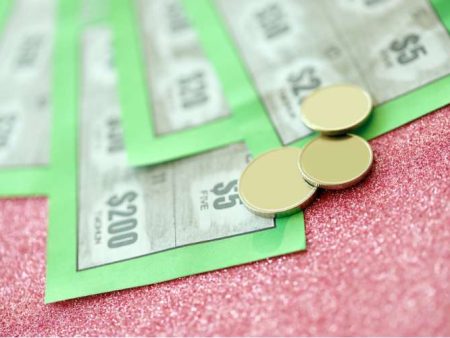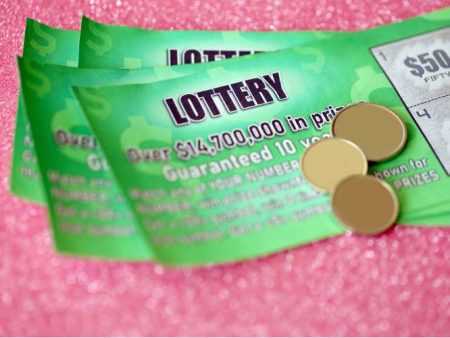
What's on this page
Scratch cards have become a widely popular form of entertainment, especially in the UK. Whether you’re in a shop, on your phone, or online, they seem to be everywhere. The quick thrill of scratching off panels and the anticipation of whether you’ll win has captivated millions of people. But have you ever wondered what makes scratch cards so enticing? It’s not just about the chance to win money—there’s a deeper psychological appeal at play. In this article, we’ll delve into the psychology behind scratch cards and explore why they’re so irresistibly popular. We’ll also discuss how you can play scratch cards responsibly while enjoying the experience.
Instant Gratification: The Allure of Immediate Results
One of the most appealing aspects of scratch cards is the instant gratification they offer. Unlike many other forms of gambling, where you may need to wait for the game to progress or the results to be drawn, scratch cards provide immediate feedback. As soon as you finish scratching, you know whether you’ve won or lost.
This sense of instant feedback taps into our need for quick rewards. It aligns with our brain’s natural craving for scratch card psychology—the desire to get something right away. The thrill of winning, even if it’s just a small amount, triggers our reward systems and makes us feel satisfied almost instantly.
- Instant feedback means you know if you’ve won or lost immediately.
- This instant gratification appeals to players seeking a quick thrill.
Many people enjoy the sensation of winning, even if it’s just a small amount, and the ability to scratch and reveal the outcome makes it feel even more rewarding. This instant gratification is why scratch cards continue to be a top choice for players looking for a quick, exciting experience.
The Role of Randomness and Luck
Scratch cards are built entirely around chance. The randomness of the game is another psychological factor that fuels their popularity. Unlike games like poker or blackjack, where skill and strategy come into play, scratch cards are pure luck. There’s no way to influence the outcome—just scratch, and wait to see what happens.
The randomness and luck involved create an exciting sense of uncertainty. When you purchase a card, you never know what’s underneath. This feeling of unpredictability taps into our scratch card psychology, as people enjoy the thrill of randomness and the unknown.
- The appeal of luck-based games, like scratch cards, lies in the excitement of not knowing what will happen.
- Cognitive biases such as the illusion of control can make players feel like they can influence the outcome, even though they cannot.
Another interesting psychological aspect of scratch cards is the illusion of control. Players often feel like their chances of winning are somehow tied to their actions—like how they scratch off the card or which one they choose. This belief, despite being irrational, keeps players engaged. It’s a classic cognitive bias that plays into the psychology of gambling.
The Reward System: Dopamine and the Thrill of Winning
One of the most fascinating aspects of scratch cards is the way they stimulate our brain’s reward system. When we win—even if it’s just a small amount—the brain releases dopamine, the “feel-good” neurotransmitter. This release creates a rush of pleasure, which reinforces the behavior and encourages us to play more. It’s the same mechanism behind why we enjoy all kinds of rewarding experiences, from eating our favorite foods to scoring a goal in a game.
Even small wins can trigger this response, creating a cycle of pleasure and reinforcement. The brain associates playing with the reward of dopamine, making it more likely that we’ll keep playing. This is a key reason why free scratch card games are so popular—they offer a low-risk way to experience that rush of dopamine without having to invest large amounts of money.
Here’s how the reward system plays out in scratch card psychology:
- Small wins trigger a dopamine release, which reinforces the behavior of playing.
- Even losing a game can heighten anticipation, creating a desire to try again.
Understanding this helps explain why players feel a sense of excitement, even after a loss. The possibility of winning—or even the feeling of anticipation—keeps players hooked and ready to scratch off the next card.
The Accessibility and Low Cost Factor
Another factor contributing to the popularity of scratch cards is their affordability and accessibility. Unlike other forms of gambling, such as high-stakes poker or expensive casino games, scratch cards are low-cost, making them accessible to a wide range of players. Whether you’re playing in a physical store or online, the barrier to entry is relatively low.
The affordability of scratch cards is part of their charm. You can buy one for a small amount, and the potential to win a large prize is still there. For many, this makes scratch cards feel like a low-risk, high-reward activity. The psychology of scratch cards thrives on this perception—players feel they can enjoy a little thrill without risking too much money.
This ease of access is enhanced by mobile scratch cards, which bring the convenience of playing anywhere. Whether you’re on the train, in the coffee shop, or relaxing at home, you can enjoy the excitement of scratching a card on your phone.
The Social and Cultural Impact: Scratch Cards as a Social Activity
Scratch cards aren’t just about individual play—they also have a social aspect. In the UK, scratch cards have become a cultural phenomenon. They’re often bought as gifts, shared between friends, or enjoyed in a social setting. The communal nature of these cards adds another layer to their appeal.
Many players enjoy discussing their wins and losses with others, and the bingo chat room etiquette from online scratch card communities helps create a sense of camaraderie. The social sharing of winnings, whether in person or on social media, creates a sense of connection and excitement. Winning becomes a shared experience that’s enjoyed with others.
This social dynamic plays into our natural desire to connect with others, further reinforcing the appeal of scratch cards. The combination of individual excitement and social reinforcement makes scratch cards uniquely engaging.
The Impact of Advertising and Marketing
Scratch cards are often marketed as an easy way to win big. Advertisements for scratch cards—whether in stores, on TV, or online—play into the idea that they offer quick, substantial rewards with minimal effort. The imagery used in these advertisements often shows people holding up large winnings, reinforcing the idea that scratch cards are an easy route to financial success.
These marketing tactics are designed to amplify the psychological effects of the game. The visuals, slogans, and promises of instant riches create an emotional connection, enticing players to buy scratch cards. Scarcity and limited-time offers are often used to spur urgency, making players feel like they must act quickly before the opportunity is gone.
The Psychological Risks: Problem Gambling and Addiction
While scratch cards can be fun and exciting, they also carry risks. The psychological factors that make scratch cards so appealing—such as the reward system and the thrill of randomness—can lead to compulsive behavior in some individuals. The feeling of chasing losses is common in gambling, and scratch cards are no exception. When players lose, they may feel compelled to keep playing in an attempt to recoup their losses.
It’s crucial to recognize the signs of problematic gambling and take steps to ensure you’re playing scratch cards responsibly. Setting limits, taking breaks, and knowing when to stop are all important strategies to avoid the risks of gambling addiction.
- Recognize the importance of balance between fun and responsibility.
- Stay aware of emotional triggers, and know when to step away from the game.
If you or someone you know is struggling with gambling, there are resources available to help. Responsible gaming is vital to maintaining a positive relationship with gambling activities.
Conclusion
Scratch cards are a fascinating blend of psychology and chance, and their popularity is no accident. From the instant gratification they provide to the dopamine-driven reward system, scratch cards tap into fundamental aspects of human psychology. Their accessibility, social appeal, and exciting randomness make them irresistible to many.
However, it’s important to play scratch cards responsibly. Understanding the psychological drivers behind the game can help you enjoy it for what it is: an exciting, low-risk form of entertainment. So, next time you scratch off a card, remember to savor the thrill, but always stay mindful of the balance between fun and responsibility. Enjoy, but play wisely!





